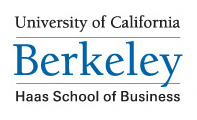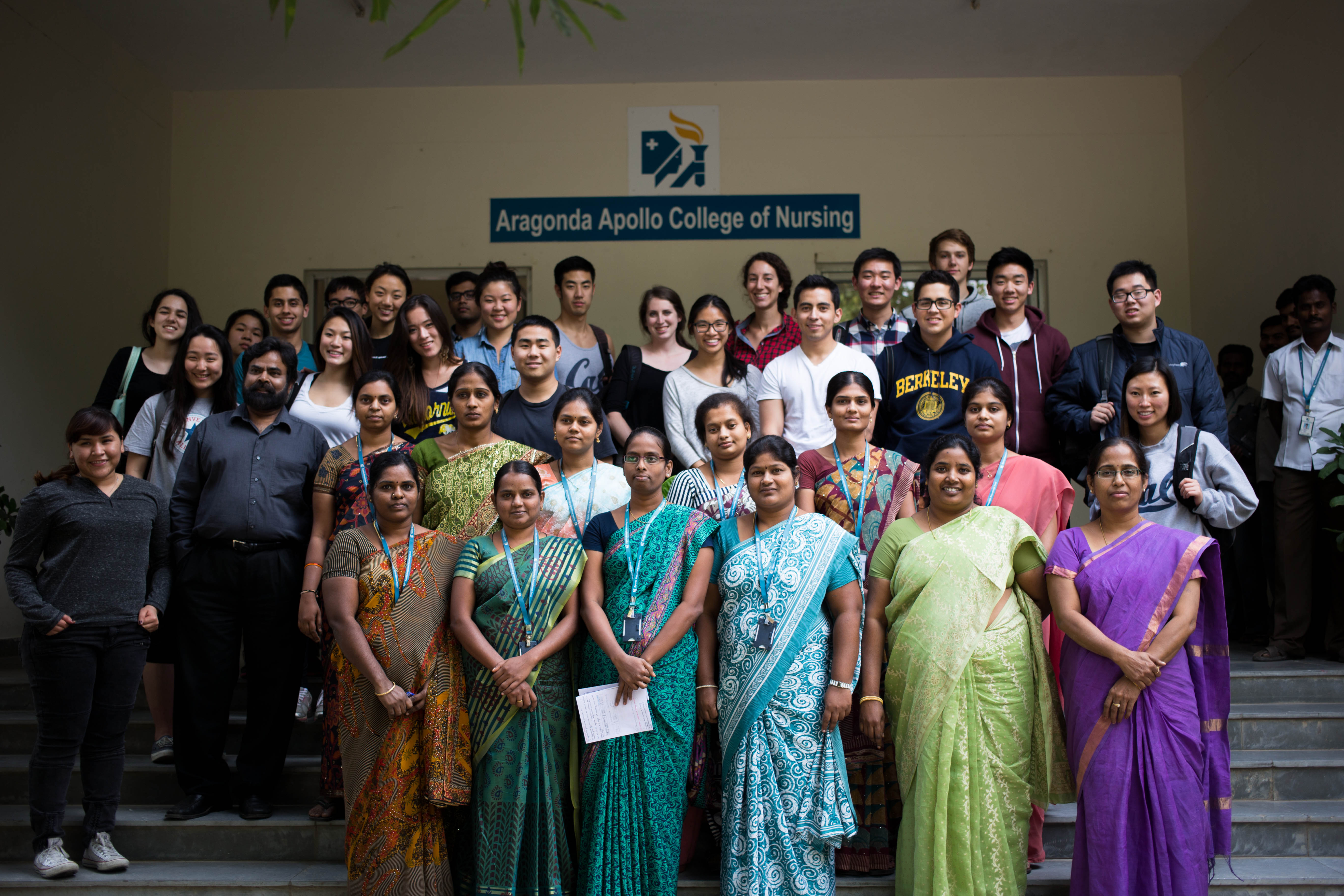
Day two started off bright and early for the students. Everyone met up in the lobby and piled into the bus at 5:30am; ready for the 4 hour drive ahead to the Aragonda Village in the Chittoor District. Professor Darwin had arranged for the students to visit the village on the outskirts of Bangalore to observe the work of Apollo Hospitals, the largest medical group in Asia, in rural India. They drove across state borders and saw beautiful sights such as the Indian sunrise, monkeys climbing on trees, and twin mountains in the countryside. Accompanying the Haas group today were senior managers of Apollo Hospital, as well as the son of Apollo Hospital chief executive, Dr. Umapathy.
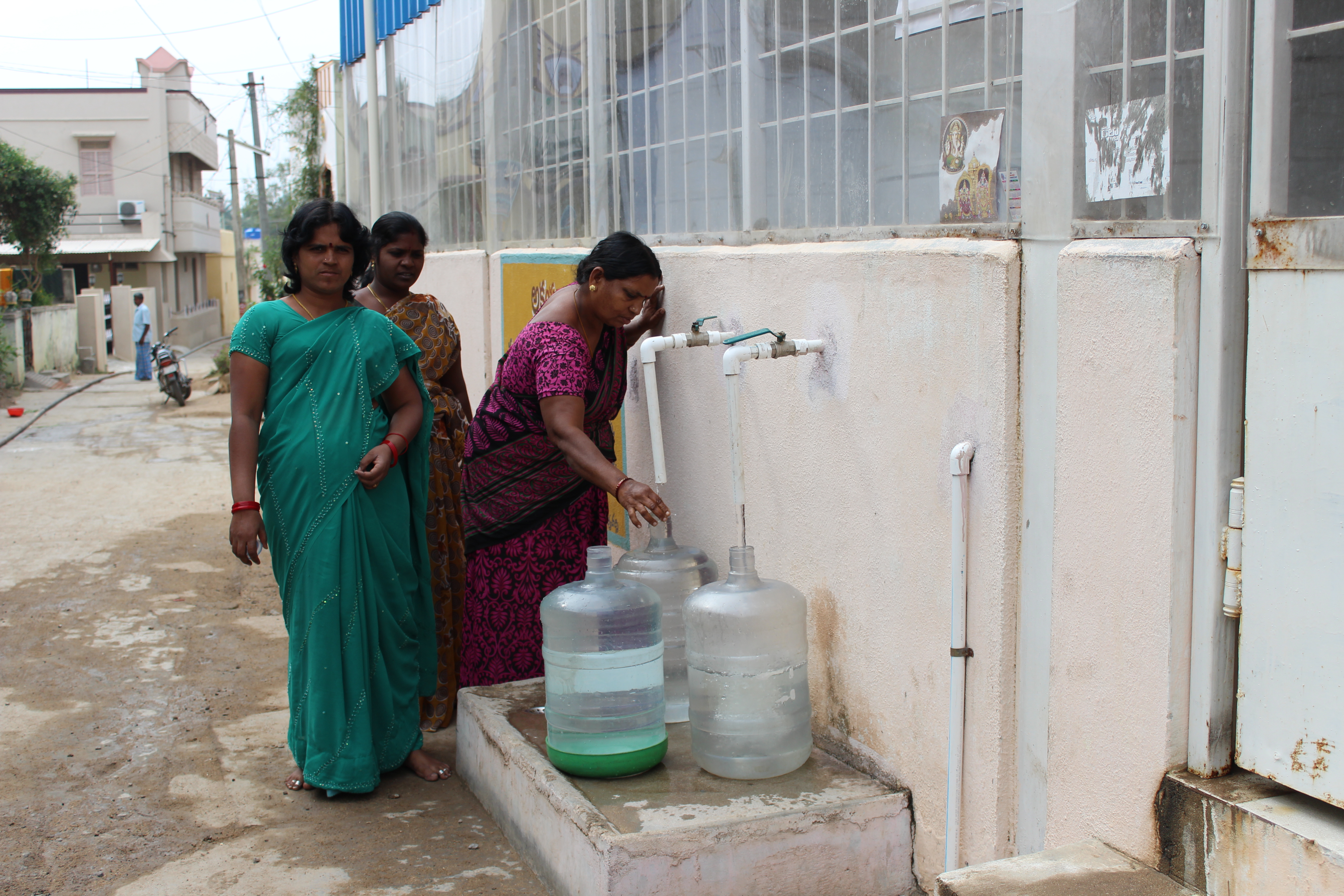
The ladies enjoy purified water
Around 10:00am, Professor Darwin and the students were greeted by the president of the village. She has been in office for the past six months, winning her election with over two thirds of the popular vote and is also actively involved in providing water for the entire town. The technology of the water purification system has greatly improved since she was elected; it is now able to process 1,000 liters of water per hour. After seeing the facilities for water provision, the group arrived at the chairman of Apollo Hospital’s guesthouse. They were able to see the contrast between different standards of living both within the village and compared this to their own Western lifestyles.

Professor Darwin walks with the school children.
They first visited AIVN, the elementary school funded by the chairman of Apollo Hospitals to the village. The Haas students were warmly welcomed by the students of the school, who ranged from pre-kindergarten to 5th grade. The Haas group was showered with kind notes, flowers, and friendly waves. The kids were so adorable; no one could resist smiling and introducing themselves. Seeing the pristine setting as well as the quality of education really impressed the Haas students and showed the extent of the chairman’s commitment to education as a solution to various rural community problems. The visit concluded in a flag-raising ceremony with Professor Darwin and the Haas students, school officials and teachers, and the school’s students singing the Indian national anthem.
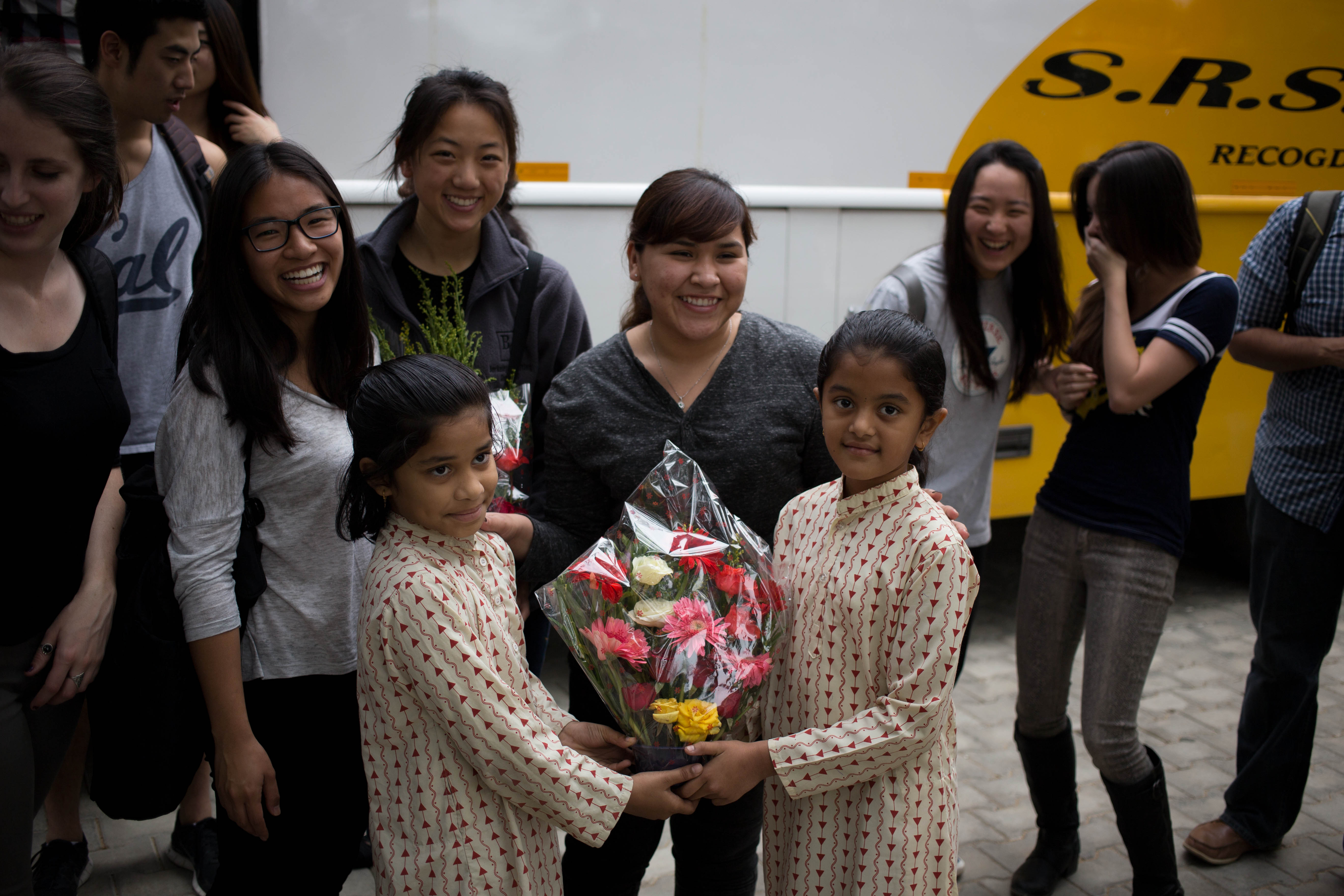
Haas students are warmly welcomed by the Apollo Hospital funded elementary school students
Next, the students traveled a short distance to the local Apollo Hospital clinic, which provided free service for operations and examinations that are worth between 3000-5000 Rupees. They saw the long lines of people waiting for care, showing the importance of the hospital in village life and its impact. They participated in a video-conference with the chairman of Apollo Hospitals, who spoke passionately about working for a purpose you find enjoyable—he himself was a cardiologist before heading Apollo Hospitals and continues to work every day to create meaningful change. Professor Darwin introduced the travel study program to the chairman, and shared a personal story that motivated the dedication to provide medical care to everyone. When asked of the students’ takeaways from the program thus far and their thoughts for the future, Haas student, Tanay Jaeel (BS 2015) eloquently described the effect of seeing the village school and hospital on the entire group and how important a role open innovation has and will played in elevating others’ lives. Valentina Fung (BS 2014) followed up with practicality and relevance, asking how the low margin business of tele-medicine was sustainable. The rousing sight and speeches reminded everyone of the purpose of the trip: to apply open innovation models to improve efficiency and scope in providing essential services.
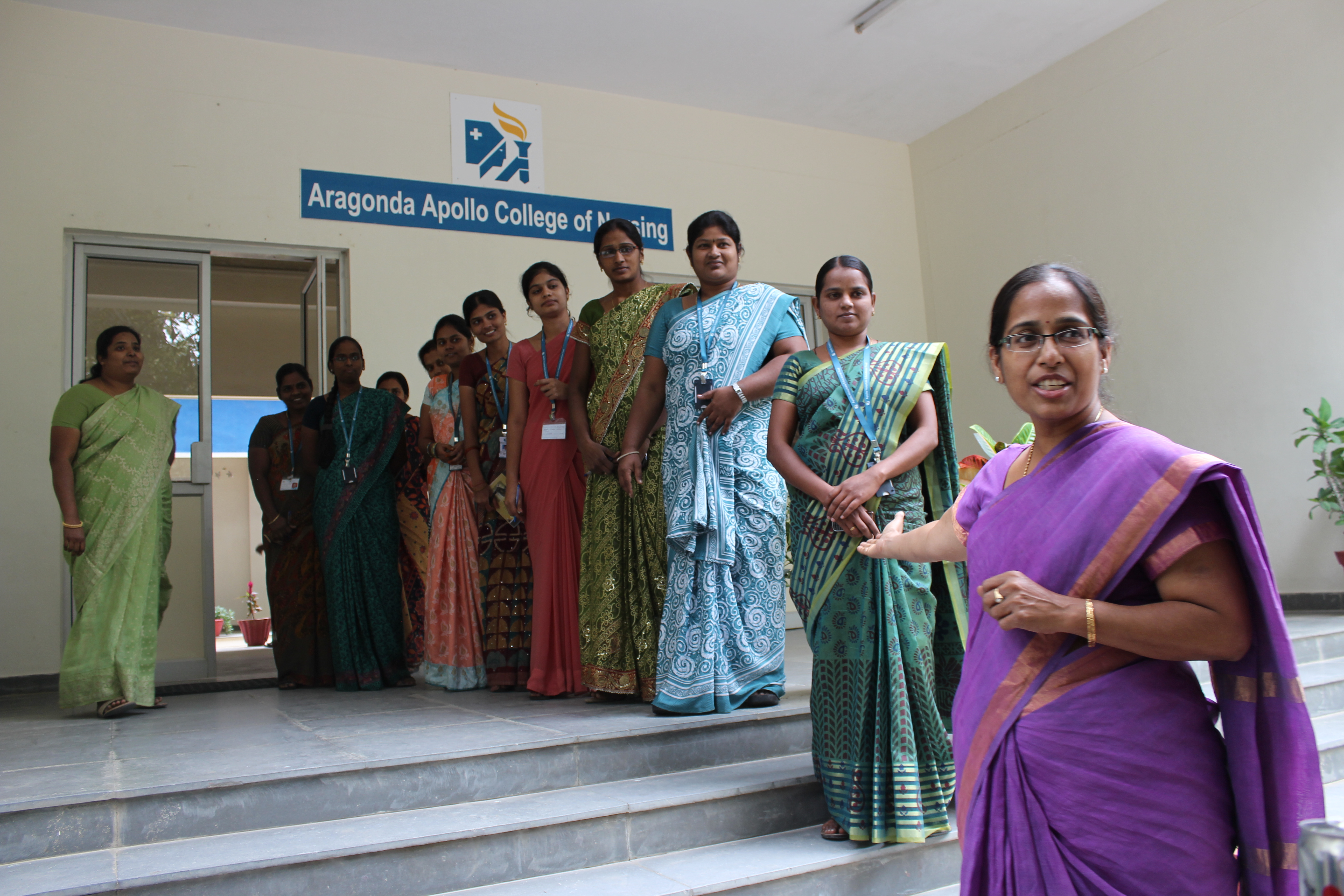
Aragonda Apollo College of Nursing
This was further impressed upon the students when they were able to witness a real-time tele-medicine conference with an Apollo Hospital doctor and 25-year-old military man who was experiencing arthritis and swelling in his fingers and feet. He was diagnosed with chicken ganue fever and prescribed a typical solution: steroid injection. The entire exchange took place with a nurse practitioner explaining the patient’s case and statistics to the doctor, who was then able to provide his counsel, to be administered by the nurse, within a 15-30 minute time period. The doctor explained how this cost effective nature of tele-medicine allowed for more frequent appointments with patients and had all but replaced regular patient care in rural areas. Patients wanted in-person care, but were usually convinced by being able to see the doctor on a more regular basis. During the entire process, students were joined by the president of the village and a doctor and administrator of the hospital.
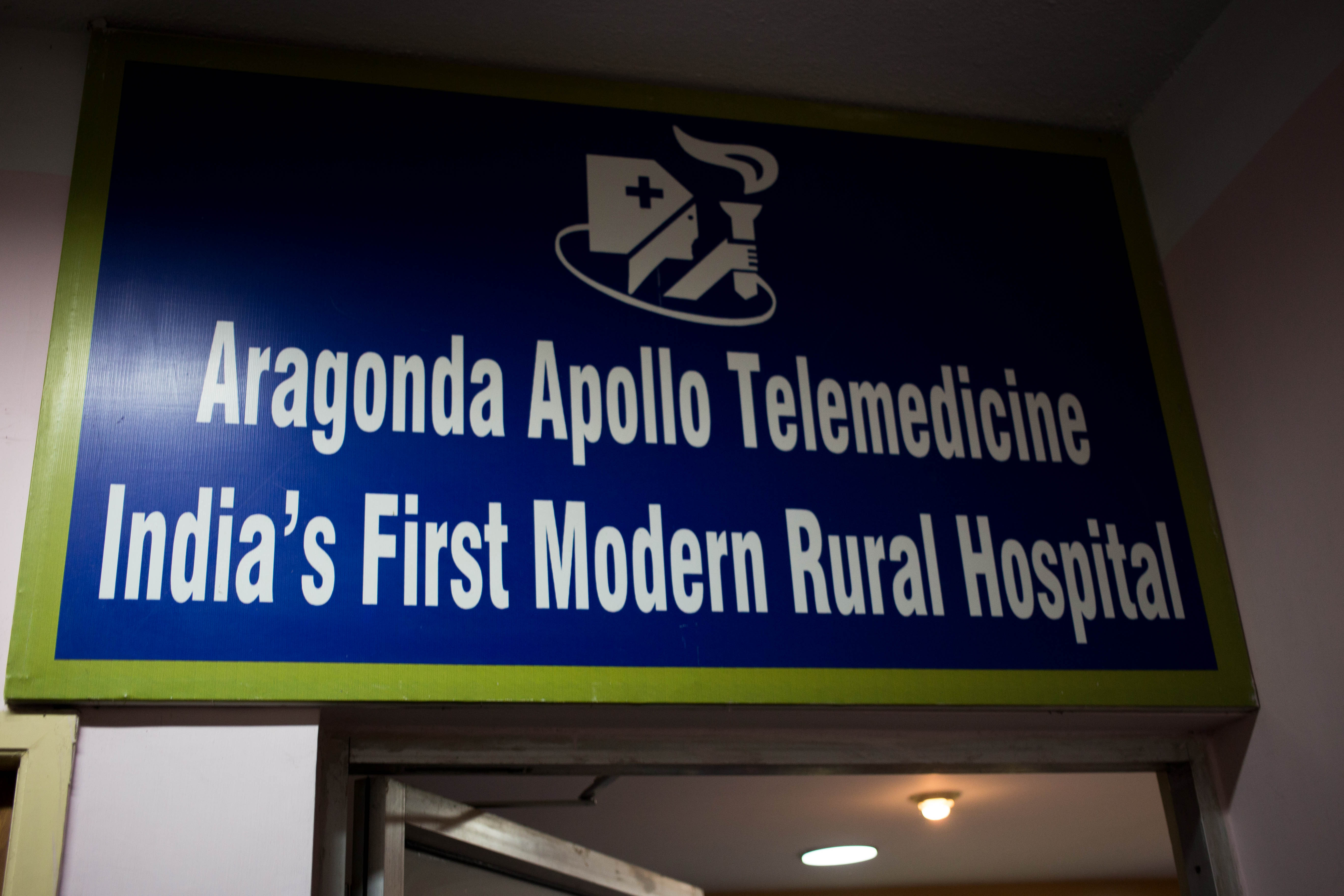
Aragonda Apollo Telemedicine
One main point of tele-medicine that was emphasized is that the doctor only needs a nurse on the other side of the camera to administer any treatments. Apollo Hospitals had set up a school of nursing in Aragonda as well, which provided training and is currently compiling a database of medical records for the 7000+ villagers by going directly to their homes and educating them. The students’ exposure to the work of Apollo Hospitals left a deep impression and appreciation of the impact of low-cost business problems to large-scale problems.
The Haas group boarded the bus for the long ride back with a greater understanding of the medical challenges many Indians face, and keep this in mind as they reflect on the Apollo Hospital semester project. As Diego Balbuena (BS 2015) puts it, “If it can be done in India, it can be done anywhere!” On the way home, Professor Darwin and the students bonded over the day’s events over boxed dinners of sandwiches and many eye-opening revelations. Tomorrow, the exciting journey continues!
